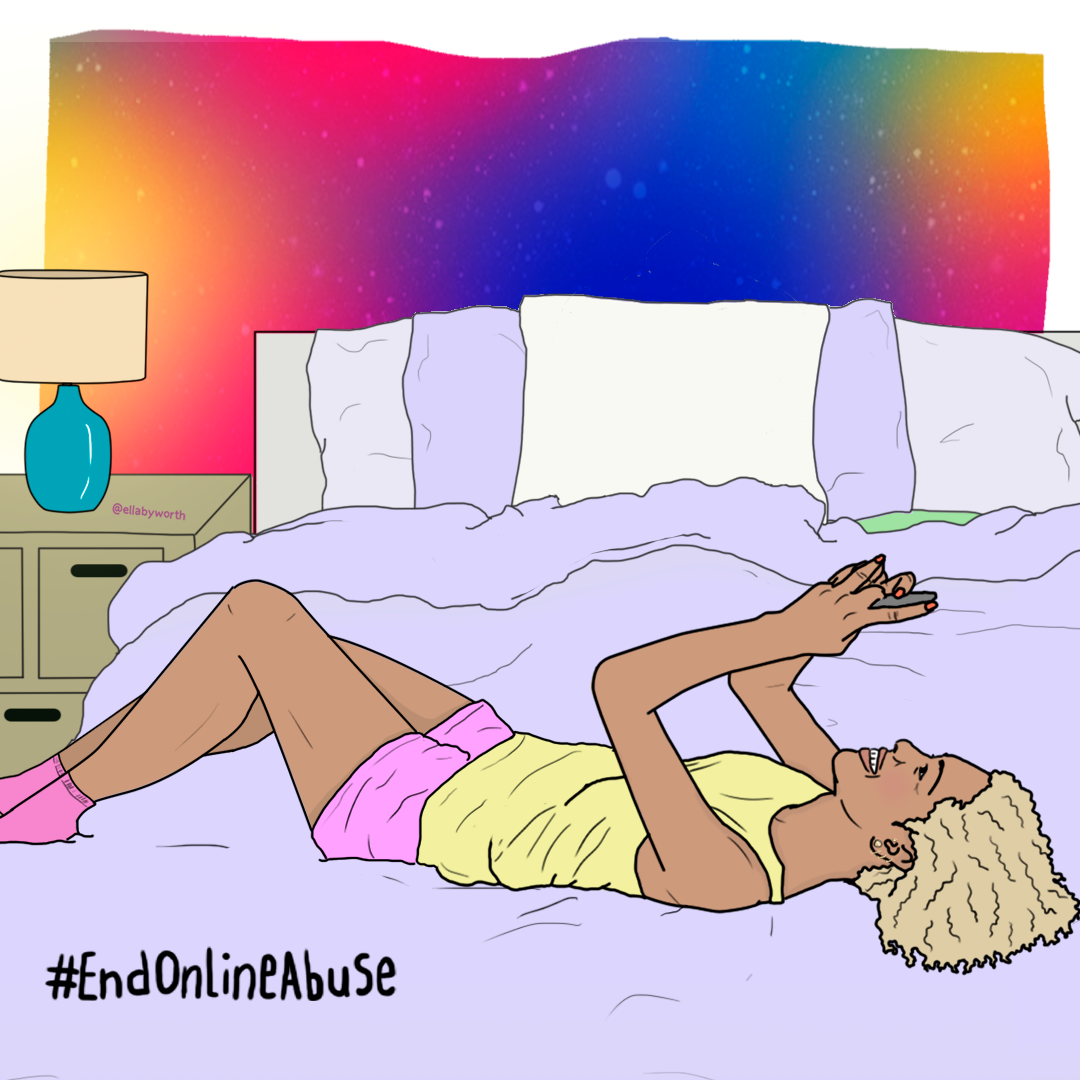 19 Mar
19 Mar
Today (17th March 2022) the government has released its long-awaited Online Safety Bill, which sets out to give internet companies a duty of care to users in a bid to create safer online spaces.
While parliamentary committees working on strengthening the Bill have previously acknowledged the severe and wide-ranging harm experienced by women and girls online, the 225 page Bill does not mention women, girls or gender a single time.
In contrast, other harms are named hundreds of times, showing a chasm between the government’s rhetoric on violence against women and girls, and its actions.
By not naming violence against women and girls on the face of this Bill, government is letting down survivors and putting countless women and girls at risk of deeply gendered harms such as image-based sexual abuse (so-called ‘revenge-porn’), rape threats, doxxing and tech abuse perpetrated by an abusive partner. These harms are silencing women and girls, whose freedom of speech is curtailed by threats of violence online.
“The online world is scarier now.. [I] have become very protective of my online presence… I am scared that one day, my ex or one of his “friends” will find a way to make my career choices impossible. That they will seek to humiliate me by sharing images of me in my virtual place of work. This is not a paranoid fear – this is a tangible possibility.”
– Georgie, survivor of image-based sexual abuse
Piecemeal and ineffective criminal offences
The introduction of new criminal offences for cyberflashing and rape threats constitute a piecemeal response that will not go anywhere near far enough to address the abuse experienced by women and girls online. Criminalising these harms narrowly focuses on individual perpetrators – letting the tech platforms that profit from this systemic abuse off the hook.
In addition, we have significant concerns about the enforceability of the new criminal offence for cyberflashing, given that it will require the police and prosecutors to evidence a perpetrator’s intent to cause harm. This is incredibly difficult to evidence and is effectively a loophole enabling perpetrators to avoid consequences, much as we see in other forms of image-based sexual abuse such as so-called ‘revenge porn’.
This will render the new offence ineffective despite cyberflashing having a significant impact on girls and young women. The only relevant factor in this offence should be whether or not there was consent, given that we know image-based sexual abuse causes harm regardless of intention.
With police already failing to prosecute offences such as rape and domestic abuse, we’re also concerned about their ability and capacity to investigate cyberflashing. What’s more, given we know how sexism and racism are deeply embedded in our justice agencies, we have concerns about access to justice by marginalised groups, as well as how these offences may be both trivialised by police and used to disproportionately criminalise Black and minoritised communities.
The End Violence Against Women Coalition and its partners have long called for the Bill to create a system of accountability for tech platforms that would require the regulator to examine the relationship between perpetrators and the platforms they use. We are extremely disappointed that upon introduction to Parliament, this crucial opportunity to regulate how these platforms address gender-based violence has been missed.
And over 60,000 people have signed a petition calling on the government to address violence against women and girls in the bill – showing overwhelming public support for action to address these harms.
Andrea Simon, Director of the End Violence Against Women Coalition, said:
“While we welcome the various committees and Parliamentarians’ acknowledgement of the deeply harmful and disproportionate impact of online abuse on women and marginalised communities, we are deeply disappointed that government has failed to remedy this with a Bill that explicitly tackles these harms.
Tech companies continue to profit from women’s abuse – whether that is so-called ‘revenge-porn’ uploaded to porn sites, or from advertising revenue gained through users’ time spent on their platform abusing women and girls, and much more.
This is not a problem that can be solved through the criminal justice system alone. It’s bigger than that – our world has moved online and our online experiences are completely intertwined with our daily lives. This Bill is about regulating the platforms that profit from our online activity and the issue of abuse of women and girls must be laid at the door of tech companies to address, with penalties for non-compliance.
If the government is serious about addressing violence against women and girls, including its online dimensions, it must name violence against women as a priority harm on the face of the Online Safety Bill. This will set the expectation that tech companies must identify, address and prevent the myriad forms of online abuse that women experience disproportionately. Only then will this legislation be a milestone for women and girls safety and freedom online.”
Take action today – add your name to our campaign for violence against women and girls to be addressed in the Online Safety Bill
ENDS
Media contact
Sinead Geoghegan, Communications Manager, sinead.geoghegan@evaw.org.uk, 07960 744 502
Recommended ARTICLES
 19 Mar
19 Mar
 05 Mar
05 Mar
 27 Feb
27 Feb

